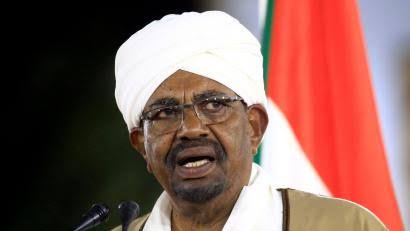Sudan Gets $21.783 Million Grant for Solar-Powered Irrigation
Efforts being made by the Sudanese government to kick-start development since the revolution are yielding fruits as the country’s development partners have started reengaging with the authorities. Many of Sudan’s development partners severed relationship with the country in the wake of series of human rights abuses leading to the revolution that ousted the government of Omar El Bashir. With the return of the partners, one area the government plans to deepen efforts is in agriculture, and how to harness renewable energy in achieving higher yields as well and poverty reduction.

In line with this, The African Development Bank’s has approved a grant of $21.783 Million to help Sudan accelerate the adoption of solar-powered irrigation pumps in the country’s West Kordofan and North Kordofan states. The project will enable farmers’ adoption of renewable energy technology through the installation of 1,170 photovoltaic (PV) irrigation pumps, the establishment of maintenance and repair workshops for the pumps, and the supply of equipment for a pump testing laboratory to provide certification and training.
Read also:Morocccan Farmers Explore Hybrid Marijuana for Better Yields
Agriculture is an important economic sector in Sudan. In 2016, nearly 40% of the country’s GDP came from farming, for the sector, and for the wider economy, the project offers significant and numerous knock-on benefits. As a result of the expected phasing out of diesel-fueled pumps, participating farmers will realise cost savings from no longer needing to purchase diesel, which is scarce in rural areas. Productivity also would increase: diesel generators require time consuming maintenance and repair. Pollution and greenhouse gas emissions from agriculture, the country’s largest contributor, would fall.
Read also:Sub-Saharan African Startups Get New $40m Impact Investment Fund
Mr. Paul Baldeh, the Bank’s Director for Power Systems Development, noted that “by extending farmers a grant covering 75% of installation costs, the government, with Bank support, will overcome the most significant hurdle of adopting clean PV technology: high upfront costs.” The remaining 25% will be payable in installments over three years. He added that the project will conduct a ground water survey and sustainability assessment that will inform the development of subsequent projects in Sudan.
The project meets the Sudanese government’s renewable energy and poverty reduction objectives as well as the Bank’s High Five and Energy Sector Policy. Moreover, the project has strong potential to be replicated and scaled up in other parts of the country.
Kelechi Deca

Kelechi Deca has over two decades of media experience, he has traveled to over 77 countries reporting on multilateral development institutions, international business, trade, travels, culture, and diplomacy. He is also a petrol head with in-depth knowledge of automobiles and the auto industry

